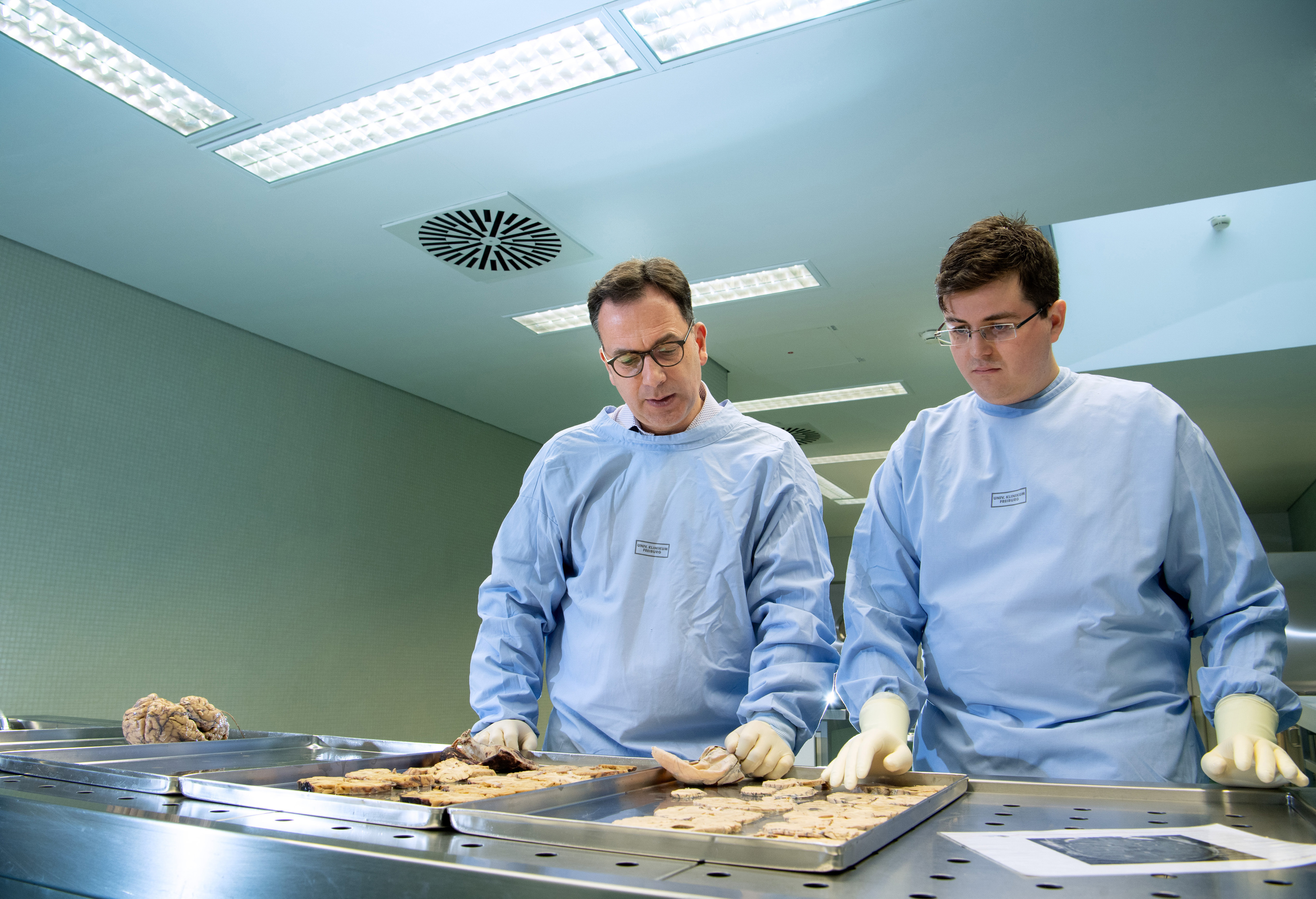"Immune scar" detected in the brain of COVID-19 recoveries
New study identifies persistent activation of the innate immune system in the brain of COVID-19 recovered patients / Potential significance for long-term neurological symptoms of COVID-19 / Publication in Acta Neuropathologica

Freiburg researchers have made important progress in understanding the immunological changes in the brains of COVID-19 survivors. In the brains of people who have survived a SARS-CoV-2 infection, they found signs of persistent activation of the innate immune system, as the research team led by Prof. Dr. Marco Prinz, Medical Director at the Institute of Neuropathology at the Medical Center - University of Freiburg, now shows. These findings, which were published in Acta Neuropathologica on July 25, 2024, could be crucial for the development of new therapies for patients with long-term neurological symptoms after COVID-19.
Brain's own immune system disrupted in the long term after SARS-CoV-2 infection
The researchers examined the brains of people who had contracted COVID-19, made a full recovery and later died of another cause. They identified immunological changes in the central nervous system. The researchers used state-of-the-art machine learning methods and spatial resolution at the single-cell level. This allows a much better understanding of the function of individual cells.
The researchers found numerous so-called microglial nodules in the brains of people who had recovered from SARS-CoV-2 compared to people who had not previously been infected with the virus. These characteristic immune cell clusters indicate chronic immune activation, similar to a scar that does not heal completely. "The microglial nodules could play a central role in the neurological changes that are observed in some recovered patients," explains Dr. Marius Schwabenland, first author of the study, assistant physician at the Institute of Neuropathology at the Medical Center - University of Freiburg and clinician-scientist in the IMM-PACT and Berta Ottenstein programs of the Faculty of Medicine - University of Freiburg.
Relevance for long-term neurological symptoms
"It is quite possible that the persistent activation of the innate immune system in the brain contributes to the long-term neurological symptoms after SARS-CoV-2 infection. In an earlier study, we had already examined samples after acute SARS-CoV-2 infection and found similar, significantly stronger changes," explains Schwabenland.
Study leader Prinz emphasizes: "Our study is an important step towards understanding how COVID-19 affects the brain in the long term. This could help us to develop targeted therapies that modulate these immune responses and improve the quality of life of those affected."
Future prospects and further research
"Our results underline the central role that dysregulated immune responses can play in COVID-19 - not only in acute infection, but also in long-term consequences such as Long-Covid," emphasizes Prof. Dr. Dr. Bertram Bengsch, Section Head at the Department of Medicine II and co-author of the study.
The investigation of different cell types of the innate and acquired immune system and the interaction of these cells represents a promising approach for future research projects that go beyond COVID-19. A better understanding of these processes could lead to new diagnostic and therapeutic approaches in the treatment of patients with infectious diseases or cancer.
Original title of the study: High throughput spatial immune mapping reveals an innate immune scar in post-COVID-19 brains
DOI:doi.org/10.1007/s00401-024-02770-6
Link to the study: https: //link.springer.com/article/10.1007/s00401-024-02770-6
Caption: Prof. Dr. Marco Prinz (left) and Dr. Marius Schwabenland (right) during brain obduction of COVID-19 recovered patients.
Image source: German Research Foundation
Back
Medical Center - University of Freiburg
Central Information
Phone: 0761 270-0
info@uniklinik-freiburg.de
For press inquiries:
Corporate Communications
Breisacher Straße 153
79110 Freiburg
Phone: 0761 270-84830
kommunikation@uniklinik-freiburg.de

